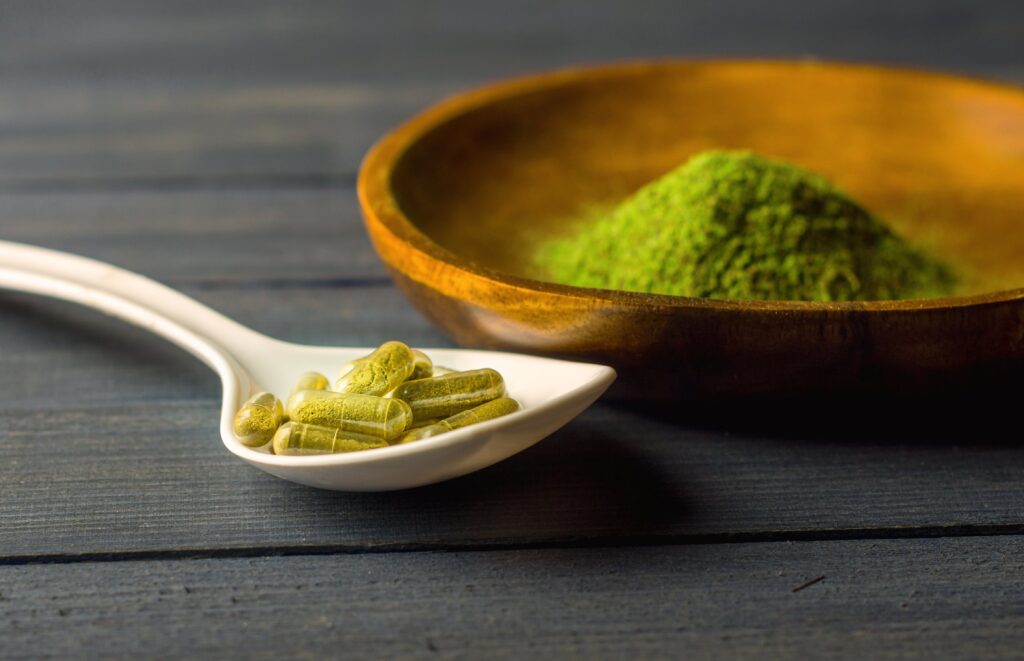Kratom Addiction Treatment in Boulder, CO
Kratom use and addiction is a growing concern in the US. The Food and Drug Administration (FDA) cautions against using kratom due to potential abuse and serious adverse effects. Including liver issues, seizures, and substance use disorder. Some individuals exhibit signs of substance use disorder with kratom, such as using more than intended, cravings, continued use despite adverse consequences, tolerance, and withdrawal symptoms. Flatirons Recovery offers safe and effective kratom addiction treatment in Boulder, CO.
What is Kratom?
Kratom” refers to both the Mitragyna speciosa tree, native to Southeast Asia, and the herbal supplements made from its leaves. Kratom leaves contain various bioactive alkaloids, with mitragynine and 7-hydroxy mitragynine being the most studied. There is not a lot known about these compounds, their short- and long-term health effects, and potential therapeutic uses.
The National Institute on Drug Abuse (NIDA) researches to inform kratom policies and health decisions. While neither kratom nor its compounds are FDA-approved for medical use, some people use kratom products to manage drug withdrawal symptoms (particularly opioids), pain, and mental health disorders. NIDA is interested in studying how kratom use may impact the ongoing opioid overdose epidemic.
People consume kratom by swallowing capsules or powder, mixing it with food or drinks, brewing it as tea, or using liquid extracts. Users report stimulant-like effects (increased energy and alertness) and opioid-like effects (relaxation, pain relief, and confusion). Rare adverse effects have also been associated with kratom.
Evidence shows kratom has been used in Southeast Asia for centuries. Primarily to boost alertness and energy during work and socially. While estimates on kratom use in the US vary, the growth of kratom vendors and increasing case reports suggest its rising popularity over the past two decades.
Kratom is a psychotropic substance and is currently categorized by the Drug Enforcement Agency (DEA) as a “Drug and Chemical of Concern.” Kratom remains legal in most states and is widely sold in powders, teas, tablets, extracts, and gum on the internet and in places such as gas stations.

Effects of Kratom
Kratom’s effects on the brain depend on the amount consumed. In smaller amounts, the drug acts as a stimulant in the body. Thereby, producing increased energy, alertness, and a similar high to that of cocaine or methamphetamines. In larger doses, it has the opposite effect. Thus, producing sedation and decreasing pain. When used in larger quantities, kratom interacts with the opioid receptors in the brain, similar to that of prescription opioids.
People sometimes begin using kratom as an alternative to prescription opioids, believing it to be healthier. Still, kratom can be abused and is highly addictive in much of the same way. Also, kratom carries with it many negative side effects including:
- Nausea and vomiting
- Dizziness
- Sweating
- Dry mouth
- Itching
- Loss of appetite
- Hallucinations
- Constipation
- Seizures
- Psychosis
Our kratom addiction treatment in Boulder, CO, helps clients manage these negative side effects as they begin recovery. Aside from these side effects, kratom abuse can be dangerous, especially due to the high risk of dependency and addiction.
Dangers of Kratom
Numerous reports suggest that kratom has been used for various medicinal purposes, including treating depression, anxiety, ADHD, chronic pain, and as an alternative to methadone for opioid addiction. However, a wide range of adverse effects have also been documented. More concerns are emerging daily. The FDA has warned about contaminated kratom products, posing risks of illness due to Salmonella and heavy metal contamination.
Another significant concern is the dual nature of kratom’s effects. When taken in recommended amounts based on dosage information provided by kratom companies, it acts as a stimulant. Therefore, offering increased energy, heightened focus, and concentration. Similar to a strong caffeine dose. However, reports show an unpleasant “drugged” sensation associated with this use.
Whereas, consuming higher doses than recommended leads to kratom’s sedative effects. Often, these effects are experienced when brewed as tea. Users have compared these effects as similar but milder than those of heroin and opiate painkillers. Kratom is also reportedly highly addictive. Some individuals with opioid addiction attempt to transition to kratom due to its legal status and perceived lack of overdose risk.
Current reports indicate instances of overdose or death linked to kratom use have also involved other substances such as cough syrup, illicit drugs, and alcohol. Additionally, neonatal abstinence syndrome has been reported in newborns exposed to kratom before birth.
Signs Of Kratom Addiction
- Continuing kratom use despite negative consequences
- Cravings
- Withdrawal symptoms when decreasing or stopping use, including insomnia, jerky movements, mood swings, irritability, and muscle aches
- Building a tolerance to kratom (i.e. needing more and more to achieve the same “high”)
- Shame, secrecy, or lying surrounding the use
- Inability to cut back on use
- Trouble functioning in social situations or otherwise without using kratom
- Irregular sleep patterns, such as sleeping at odd times
- Use affects relationships negatively, though the user continues to use it anyway
- Using more than the recommended dosage
- Engaging in risky behaviors, such as driving while intoxicated
- Changes in physical appearance (decreased hygiene, weight loss)
- Feeling angry or defensive when confronted about the use

Kratom Addiction Treatment in Boulder, CO
Kratom addiction can be challenging to overcome. Flatirons Recovery offers safe and effective kratom addiction treatment in Boulder, CO. We are committed to helping clients break free from dependency and regain control of their lives. The kratom addiction treatment may include the following steps:
Assessment
A comprehensive evaluation by a healthcare professional to determine the extent of addiction and any co-occurring mental health disorders.
Medical Detoxification
For individuals with severe kratom addiction, a medically supervised detox may be necessary. This involves gradually reducing kratom use while managing withdrawal symptoms under medical supervision.
Behavioral Therapy
Therapy is a fundamental component of addiction treatment. Cognitive-behavioral therapy (CBT) and Acceptance and commitment therapy (ACT) are commonly used approaches to help individuals recognize and modify addictive behaviors and thought patterns.
Support Groups
Participating in support groups, such as Narcotics Anonymous (NA) or other recovery-focused groups, provides valuable peer support and encouragement during the recovery process.
Medication-Assisted Treatment (MAT)
In some cases, medications may be prescribed to help manage withdrawal symptoms and cravings. However, there are no FDA-approved medications specifically for kratom addiction treatment. So, MAT is often used to address co-occurring opioid addiction.
Individualized Treatment Plans
Treatment plans should be tailored to the individual’s unique needs and circumstances. This may involve addressing underlying mental health issues, such as depression or anxiety.
Education and Relapse Prevention
Education about the risks and consequences of kratom use is crucial. Learning effective relapse prevention strategies and coping skills helps individuals avoid relapse.
Holistic Approaches
Some individuals find benefits in holistic approaches such as mindfulness meditation, yoga, nutritional counseling, and experiential therapy as part of their recovery journey.
Family Involvement
Involving family members in the treatment process provides crucial support and helps repair damaged relationships.
Aftercare
Ongoing monitoring and support are essential to prevent relapse and ensure sustained recovery. Aftercare programs, therapy sessions, and support group attendance help maintain sobriety.
Overall, kratom addiction treatment in Boulder, CO should be tailored to the individual’s specific needs, circumstances, and goals. Seeking professional help from addiction specialists and mental health professionals is highly recommended to create an effective and personalized treatment plan. Overcoming kratom addiction is possible with the right support and dedication to the recovery process.

Begin Kratom Addiction Treatment in Boulder, CO
At Flatirons Recovery we provide an effective and compassionate approach to overcoming kratom addiction. Our experienced team utilizes evidence-based treatment strategies, combined with unparalleled care and support, to guide individuals along their journey to recovery. By understanding the unique challenges of kratom dependency, we offer a personalized treatment plan designed to provide the tools necessary for sustained sobriety. Reclaim control of your life at Flatirons Recovery.
Contact us today to learn more about our approach to kratom addiction treatment in Boulder, CO.